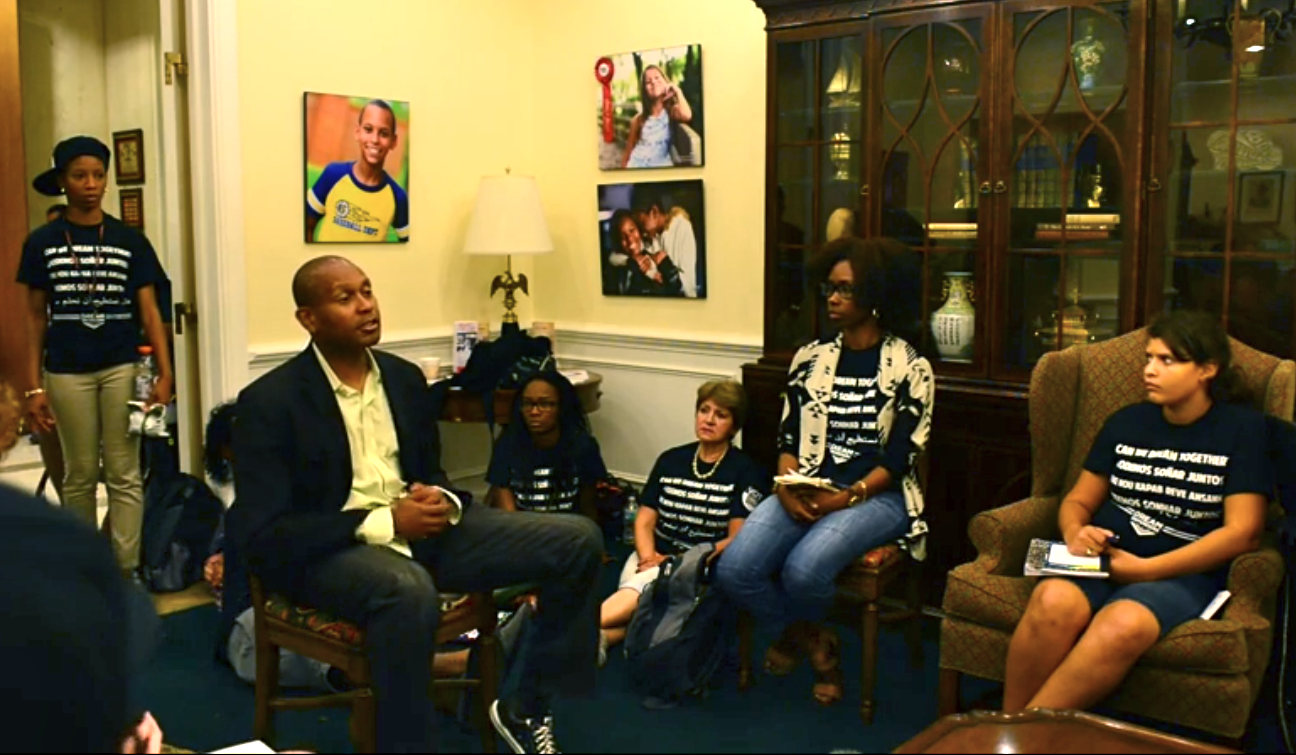“Evolution is speeding up, not time. Consciousness is evolving, becoming aware of itself as creation's mentor. Children are evolution's front edge. They push at boundaries... challenge the status quo...irritate convention. That is their job...to set free all that sullies the human heart and blinds the mind to the relationship between the Creator and the Created." ~ P.M.H. Atwater~
MY WORK ... MY PASSION
• Certified Transpersonal Hypnotherapist ; Past experiences: Dream Analysis /10 Years Experience •Psychotherapist / Use of Gestalt, Jungian, Zen, Reality and Energy Therapies /10 Years Experience •EMDR • Men and Their Journey: the neuroscience of the male brain, and the implications in sexuality, education and relationship • Women: Their Transformation and Empowerment • ATOD (Alcohol, Tobacco and Other Drugs) / 21 years experience •Ordained Interfaith Minister & Official Celebrant • Social Justice Advocate • Child and Human Rights Advocate • Spiritual Guide and Intuitive • Certified Reiki Practitioner • Mediation / Conflict Resolution • “Intentional Love” Parenting Strategy Groups • Parenting Workshops • Coaching for parents of Indigo, Crystal, and Rainbow Children • International Training: Israel & England • Critical Incident Stress Debriefing • Post-911 and Post-Katrina volunteer
MSW - UNC Chapel Hill
BSW - UNC Greensboro
With immense love I wish Happy Birthday to my three grandchildren!
May 22: Brannock
May 30: Brinkley
June 12: Brogan
All three have birthdays in the same 22 days of the year ....what a busy time for the family!
"An Unending Love"
This blog and video is devoted and dedicated to my precious daughter Jennifer, my grand daughters Brogan and Brinkley, and my grand son Brannock. They are hearts of my heart. Our connection through many lives..... is utterly infinite.
The Definition of Genius
"THRIVE"
"ONLY LOVE PREVAILS" ...."I've loved you for a thousand years; I'll love you for a thousand more....."
Don't it just look so pretty
This disappearing world
We're threading hope like fire
Down through the desperate blood
Night falling on the city
Quite something to behold
Don't it just look so pretty
This disappearing world
This disappearing world
I'll be by your side
Hit 'em 'tween the eyes
Through the smoke and rising water
Cross the great divide
Baby till it all feels right
This disappearing world
This disappearing world
"The degree of our enlightenment is the degree of passion that we will have for the whole world." ~The Greystone Mandala
"The best argument against democracy is a five-minute conversation with the average voter." ~ Winston Churchill
Kant: "We are not rich by what we possess, but what we can do without."
"A child can teach an adult three things: to be happy for no reason, to always be busy with something, and to know how to demand with all his might that which he desires." ~ Paulo Coelho
“It is not the critic who counts,not the man who who points out how the strong man stumbles, or where the doer of deeds could have done them better. The credit belongs to the man who is actually in the arena, whose face is marred by dust and sweat and blood; who strives valiantly; who errs, who comes short again and again, because there is no effort without error and shortcoming; but who does actually strive to do the deeds; who knows great enthusiasms, the great devotions; who spends himself in a worthy cause; who at the best knows in the end the triumph of high achievement, and who at the worst, if he fails, at least fails while daring greatly, so that his place shall never be with those cold and timid souls who neither know victory nor defeat.”Theodore Roosevelt
TECHNOLOGY..........
In “Conversations with God”, by Neale Donald Walsch, there is a warning I think of. I refer to it as the Atlantis passage, and I've quoted it a few times before." As I have said, this isn't the first time your civilization has been at this brink,"
God tells Walsch. "I want to repeat this, because it is vital that you hear this. Once before on your planet, the technology you developed was far greater than your ability to use it responsibly. You are approaching the same point in human history again. It is vitally important that you understand this. Your present technology is threatening to outstrip your ability to use it wisely. Your society is on the verge of becoming a product of your technology rather than your technology being a product of your society. When a society becomes a product of its own technology, it destroys itself."
Tuesday, August 27, 2013
Scientists Prove DNA Can Be Reprogrammed by Words and Frequencies ~ By Grazyna Fosar and Franz Bludorf
Extraordinary, Productive and Exaggerated Narcissism: the Twilight between Healthy and Pathological ~ From "CZ/The Narcissistic Continuuum
 |
| Louis Antoine de Gontaut-Biron 1757 |
Included in this article are links to Ronningstam's description of "extraordinary narcissism" and Maccoby's "productive narcissism." They seem to be one and the same although I cannot say whether or not they'd agree with my comparison. There's not much literature for me to go on so I'm kinda wingin' it here, folks. Tell me what you think.
Extraordinary Narcissism
“Extraordinary narcissism is associated with genuine ability, an understandably--even justifiably--high self-regard, and largely adaptive functioning." ~Caroline Logan
Productive Narcissism
"A narcissist may be either productive or unproductive. The difference is that the most productive narcissists, the ones who do change our world, have the charisma and drive to convince others to buy in to their vision or embrace a common purpose. They communicate a sense of meaning that inspires others to follow them, whereas the unproductive types retreat into their own world and blame others for their isolation." ~Michael Maccoby
Ever know one of those extraordinary/productive narcissists up close and personal? Maybe not, yet their celebrated media presence shapes everyone's lives in subtle and destructive ways: the way we measure ourselves, the way others perceive us, how we perceive and measure others. For example, tell your friends that after an honest self-appraisal, you decided to turn down the job promotion because you couldn't handle any more stress. Your job was affecting your relationships. Without even thinking, they'll say, "Oprah had a terrible childhood and look what she did with her life! Stop giving yourself excuses! You can do it!" Then as if comparing your fair-to-middling life to Oprah's bigger-than-life life weren't enough to make ya feel like a loser, your friend rambles off a list of famous people growing up on the streets, eating out of garbage cans, living in public restrooms, walking sixty miles to the nearest log-cabin school and they didn't let real-and-true obstacles like that hinder theirsuccess. They didn't go bawling their heads off to therapists when their toast fell butter side down. NO! They asserted themselves, set their sights on winning, and crawled to the top of Bunker Hill where they promptly installed WiFi to broadcast their victory.
Ordinary people are subjected to ridiculous comparisons and expectations in an image-saturated culture. American media is rife with Horatio Alger stories appealing to our Inner Wishers (the magical child) while undermining our general-state-of-happiness. When extraordinary narcissism is promoted as success because self-promoters self-promote, ordinary people feel like putzes for being contented with their simple lives. What is wrong with me that I don't have a desire to reach for the stars? I've actually asked myself that question numerous times. I'll bet many of you have, too. We've been groomed to define success in materialistic terms while lip-syncing discourse on the meaning and purpose of life, a predictable outcome when role models are Bunker Hillers.
 |
| Peacock Profile by Edgar Maxence |
What we fail to notice is that people like Oprah are geniuses and and the vast majority of us AREN'T. I also believe an element of luck provides extraordinary opportunities and extraordinary support, although narcissists usually attribute success to themselves because of their extraordinary self-focus: their positive thoughts, powerful intentions, and other rubbishy self-admiration. In other words, people's negative thoughts, weak-minded intentions and lack of self-admiration is why they're still in the same town they grew up in with nothing to show for themselves besides a modest home, a happy kitty, dearly beloved friends and family.
Another reason extraordinary/productive narcissists can be breathtakingly self-congratulatory is because in spite of their heralded VISION, narcissists don't see the little people contributing to their success. They don't intentionally deny other people's contributions. Narcissists literally don't notice other people's contributions or the privileges they've had that other people didn't. When your hard work and loyal support isn't recognized, well...just remember it ain't personal. Nails in ladders are to be expected and should never stick out lest they prick the narcissist's Achilles heel on his/her climb to extraordinary success.
“Extraordinary narcissism is associated with genuine ability, an understandably--even justifiably--high self-regard, and largely adaptive functioning. Self-esteem and affect are mostly regulated and interpersonal relationships are on the whole acceptable although they may demonstrate more change, conflict and drama than generally featured in those whose narcissism is within normal limits. However, the risk of infringing the rights of others in pursuit of the individual’s own achievements, interests, desires and rights is elevated in those with extraordinary levels of narcissism.” ~Caroline Logan in Personality, Personality Disorder and Violence: an Evidence Based Approach (page 89)
Glue that in your Abuse Notebook.
Extraordinary narcissism doesn't mean narcissists are exceptionally healthy and confident. It means their narcissism is exaggerated without being pathological. Think of extraordinary narcissism as an exaggerated personality. Take any trait, behavior, or feeling and put a plus sign on it like heightenedentitlement+, heightened exhibitionism+, heightened individuality+ and there you have it: celebrity role models. If normal narcissism is defined as healthy self-love, then extraordinary narcissism would be exaggerated self-love+, leaving little room for loving others. This makes it easier to understand why people are hurt by extraordinary/productive narcissists who do not qualify for a NPD. The wounds can be significant+ for children raised by extraordinary narcissists.
Most of us are ambitious. We work hard achieving our goals, putting time and effort into refining our skills while also meeting social and family responsibilities. We struggle, at least I DO, balancing my desires and needs, with other people's desires and needs, often sacrificing a little bit of my narcissism, thus making more room for loving others. An exaggeration of narcissism heightening self-love, would foster exploitation, infringing on other people's rights. Especially children's right to be loved, not acquired.
"Whoever loves," Freud said, "becomes humble. Those who love have, so to speak, pawned a part of their narcissism."
Self Esteem Regulation: Heightened self-confidence and self-worth, sense of invulnerability; Capacity for unusual risk taking and decision making, and to integrate unusual ideas, ideals and goals into real achievements or creative accomplishments
Affect Regulation: Exceptional capacity to feel certain feelings related to tasks or goals
Interpersonal Relationships: Heightened entitlement, ability to feel that one deserves extraordinary circumstances or endowments, ability to take on exceptional roles and tasks; Heightened exhibitionism, potentials for leadership, charisma and capacity to conceptualize and embody ideas or mission in relationship to others; Exceptional capacity for devotion
Superego Regulation: Superego regulation with exceptional ideals, high and unusual standards for performance and achievement, unusual sense of responsibility and commitment to a specific task or role (pages 72-73)
 |
| Vrai Vanity by Katrina Rhodes |
"I overheard a conversation between a productive narcissist who is known for his tremendous work output and a colleague; the narcissist was ticking off the many projects he had undertaken recently, to which the colleague said, "Wow, no rest for the weary." The narcissist looked at him and said, absolutely straight-faced, "Why would you ever rest from what you love?" ~Michael MaccobyExtraordinary narcissists accomplish things average people never will because we won't get up at 3:00 a.m. for two hours of make-up then hair dressing to be on camera by six. We won't promote ourselves at other people's expense. Our conscience won't let us make choices productive narcissists make ten times an hour a hundred and seventy times a day. Yet in the background of our ordinary lives and ordinary morality, hums the persistent cultural message to manifest our destiny, to reach for the stars, to achieve our dreams, to BE productive narcissists. Of course, this message contradicts the values we purport to cherish. Little things like the golden rule; the eight precepts; the ten commandments; loving our neighbors as ourselves. Communal values.
Productive narcissists are visionary leaders with indefatigable tenacity and certainty, appearing to be Bigger than Life. We allow them to get away with things we deem unethical, immoral. Before we even realize what's happened, we've 'normalized' their behavior, mimicking what we see in the media because they've become our role models. (This IS the nugget gleaned from The Mirror Effect: How Celebrity Culture is Seducing Americans).
But you know what? Productive/extraordinary narcissists rise to the top by doing things ordinary folks wouldn't, absolving themselves of responsibilities ordinary people can't, putting themselves first, their goals as the highest priority (for everyone--even their children) and then, after garnering a sizable audience, teaching self-actualization courses to the unwary ordinary. (please don't send hate mail. It hurts my feelings).
There is some evidence that extraordinary, productive narcissists do not experience the same sadness, anger, shame and rejection other people do. As most of us know from first-hand experience, pathological narcissists are hostile to perceived insults, even the hint of criticism. I think extraordinary and productive narcissists react too, but not self-destructively. Do they have better impulse control? A moral anchor stabilizing them? Maybe schema therapy? ha! What I'm suspecting is that they're better manipulators with extraordinary skills of persuasion--convincing people that hurting them was for their own good.
"Anyone who has big dreams and the daring to go after them, is bound to fail at one time or another. It's how a person reacts to failure that differentiates the productive personality from the unproductive one...productive narcissists refuse to acknowledge or even register their defeats." ~Michael Maccoby
See what I mean? The problems he faced would keep people awake at night, worrying about the impact of their decisions on other people. They'd be anxious about employees' pensions---the pressure would overwhelm them. So I get it. I get that we need extraordinary narcissists with such unshakable faith in themselves that they can direct companies keeping ordinary people employed with excellent benefits. But if we really need productive narcissists heading our organizations, what is OUR responsibility for holding them accountable? For countering the risks extraordinary narcissists are prone to make? As we've witnessed in the recent financial robbery, narcissists won't limit themselves. They'll go as far as they're allowed to go because they are uber-entitled. Because they are uber-special.
"The danger is that narcissism can turn unproductive when, lacking self-knowledge and restraining anchors, narcissists become unrealistic dreamers. They nurture grand schemes and harbor the illusion that only circumstances or enemies block their success. This tendency towards grandiosity and distrust is Achilles' heel of narcissism. Because of it, even brilliant narcissists can come under suspicion for self-involvement, unpredictability and---in extreme cases---paranoia. It is easy to see why narcissistic leadership doesn't always mean successful leadership." ~Michael Macoby, Harvard Review
We read about narcissists wondering where the line between narcissistic traits (normal) and a narcissistic personality disorder (pathological) might be. We want answers. People identify with the emotional and psychological damage caused by narcissistic relationships, but the criteria for a NPD doesn't fit. They can't put a pathological template on the high-functioning narcissist who maintains a job, doesn't leave a trail of broken relationships, is hard-working, loyal to his/her commitments, by all measures: extraordinary and productive. My main argument today is that while we use the NPD label to describe a range of narcissistic traits, patterns and behaviors, the person(s) we're describing may not fit criteria for a clinical NPD. That does not mean in any way whatsoever, that being raised by extraordinary/productive narcissists won't cause emotional, psychological and spiritual wounds. Children suffer when they are second-place to the parental need for admiration and power. Children suffer when agentic values are exaggerated.
I think the concept of extraordinary/productive narcissism might help us understand the "invalidation" children of narcissists experience. When asked about their family-of-origin, many ACoNs say their parents were not abusive, that people admired their parents and their family b-u-t, there's a few things that bother them, could we talk? I think this happens because had their parents been obviously ill or "broken" (as is often the case with pathological narcissists), their children wouldn't be as self-doubting, self-blaming, and confused as adults. Even though it's painful growing up with a parent who has a mental illness, the child's perceptions and feelings aren't invalidated by other adults. People agree their childhood must have been difficult and aren't they doing marvelously considering what they've been through! People would not be saying how lucky they were, what pillars of society their parents were.
Thinking about Ronningstam's description of extraordinary narcissism and Maccoby's productive narcissism may be the closest explanation we have for growing up in families that were not, according to clinical psychologists, pathological. Creating a twilight space for exaggerated narcissism may address the hurtful impact of "shiny apple" families.
Monday, August 26, 2013
"What Is Betrayal Trauma?" ~ Kindness to Sanctuary for the Abused (link below)
Sanctuary for the Abused
Sunday, August 25, 2013
Betrayal Trauma

What is Betrayal Trauma Theory?
Short Definitions
The phrase "betrayal trauma" can be used to refer to a kind of trauma (independent of the reaction to the trauma). E.g. This definition is on the web: "Most mental health professionals have expanded the definition of trauma to include betrayal trauma.
Betrayal trauma occurs when the people or institutions we depend on for survival or those we trust violate us in some way. An example of betrayal trauma is childhood physical, emotional, or sexual abuse."
The phrase "Betrayal Trauma theory" is generally used to refer to the prediction/theory about the cause of unawareness and amnesia as in: "Betrayal Trauma Theory: A theory that predicts that the degree to which a negative event represents a betrayal by a trusted needed other will influence the way in which that events is processed and remembered."
History of Terminology
Jennifer Freyd introduced the terms "betrayal trauma" and "betrayal trauma theory" in 1991 at a presentation at Langley Porter Psychiatric Institute:
Freyd, J.J. Memory repression, dissociative states, and other cognitive control processes involved in adult sequelae of childhood trauma. Invited paper given at the Second Annual Conference on A Psychodynamics - Cognitive Science Interface, Langley Porter Psychiatric Institute, University of California, San Francisco, August 21-22, 1991.
From that talk:
"I propose that the core issue is betrayal -- a betrayal of trust that produces conflict between external reality and a necessary system of social dependence. Of course, a particular event may be simultaneously a betrayal trauma and life threatening. Rape is such an event. Perhaps most childhood traumas are such events."
Betrayal trauma theory was introduced: "The psychic pain involved in detecting betrayal, as in detecting a cheater, is an evolved, adaptive, motivator for changing social alliances. In general it is not to our survival or reproductive advantage to go back for further interaction to those who have betrayed us.
However, if the person who has betrayed us is someone we need to continue interacting with despite the betrayal, then it is not to our advantage to respond to the betrayal in the normal way. Instead we essentially need to ignore the betrayal....
If the betrayed person is a child and the betrayer is a parent, it is especially essential the child does not stop behaving in such a way that will inspire attachment. For the child to withdraw from a caregiver he is dependent on would further threaten his life, both physically and mentally. Thus the trauma of child abuse by the very nature of it requires that information about the abuse be blocked from mental mechanisms that control attachment and attachment behavior. One does not need to posit any particular avoidance of psychic pain per se here -- instead what is of functional significance is the control of social behavior. "
These ideas were further developed in talks presented in the early 1990s and then in an article published in 1994. A more definitive statement was presented in Freyd's 1996 book. [See refs at end of this web page.]
Betrayal Trauma Theory and Research
Betrayal trauma theory posits that there is a social utility in remaining unaware of abuse when the perpetrator is a caregiver (Freyd, 1994, 1996). The theory draws on studies of social contracts (e.g., Cosmides, 1989) to explain why and how humans are excellent at detecting betrayals; however, Freyd argues that under some circumstances detecting betrayals may be counter-productive to survival. Specifically, in cases where a victim is dependent on a caregiver, survival may require that she/he remain unaware of the betrayal. In the case of childhood sexual abuse, a child who is aware that her/his parent is being abusive may withdraw from the relationship (e.g., emotionally or in terms of proximity). For a child who depends on a caregiver for basic survival, withdrawing may actually be at odds with ultimate survival goals, particularly when the caregiver responds to withdrawal by further reducing caregiving or increasing violence. In such cases, the child's survival would be better ensured by being blind to the betrayal and isolating the knowledge of the event, thus remaining engaged with the caregiver.
The traditional assumption in trauma research has been that fear is at the core of responses to trauma. Freyd (2001) notes that traumatic events differ orthogonally in degree of fear and betrayal, depending on the context and characteristics of the event. (see Figure 1). Research suggests that the distinction between fear and betrayal may be important to posttraumatic outcomes. For example, DePrince (2001) found that self-reported betrayal predicted PTSD and dissociative symptoms above and beyond self-reported fear in a community sample of individuals who reported a history of childhood sexual abuse.
Research on Betrayal, Dissociation, and Cognitive Mechanisms
Betrayal trauma theory predicts that dissociating information from awareness is mediated by the threat that the information poses to the individual's system of attachment (Freyd, 1994, 1996). Consistent with this, Chu and Dill (1990) reported that childhood abuse by family members (both physical and sexual) was significantly related to increased DES scores in psychiatric inpatients, and abuse by nonfamily members was not. Similarly, Plattner et al (2003) report that they found significant correlations between symptoms of pathological dissociation and intrafamilial (but not extrafamilial) trauma in a sample of delinquent juveniles. DePrince (2005) found that the presence of betrayal trauma before the age of 18 was associated with pathological dissociation and with revictimization after age 18. She also found that individuals who report being revictimized in young adulthood following an interpersonal assault in childhood perform worse on reasoning problems that involve interpersonal relationships and safety information compared to individuals who have not been revictimized.
Basic cognitive processes involved in attention and memory most likely play an important role in dissociating explicit awareness of betrayal traumas. Across several studies, we have found empirical support for the relationship between dissociation and knowledge isolation in laboratory tasks. Using the classic Stroop task, Freyd and colleagues (Freyd, Martorello, Alvarado, Hayes, & Christman, 1998) found that participants who scored high on the Dissociative Experiences Scale (DES) showed greater Stroop interference than individuals with low DES scores, suggesting that they had more difficulty with the selective attention task than low dissociators. The results from Freyd et al. (1998) suggested a basic relationship between selective attention and dissociative tendencies. In a follow-up study, we tested high and low DES groups using a Stroop paradigm with both selective and divided attention conditions; participants saw stimuli that included color terms (e.g., "red" in red ink), baseline strings of x's, neutral words, and trauma-related words such as "incest" and "rape." A significant DES by attention task interaction revealed that high DES participants' reaction time was worse (slower) in the selective attention task than the divided attention task when compared to low dissociators' performance (replication and extension of Freyd et al., 1998). A significant interaction of dissociation by word category revealed that high DES participants recalled more neutral and fewer trauma-related words than did low DES participants. Consistent with betrayal trauma theory, the free recall finding supported the argument that dissociation may help to keep threatening information from awareness.
In two follow-up studies using a directed forgetting paradigm (a laboratory task in which participants are presented with items and told after each item or a list of items whether to remember or forget the material), we found that high DES participants recalled fewer charged and more neutral words than did low DES participants for items they were instructed to remember when divided attention was required (item method: DePrince & Freyd, 2001, list method: DePrince & Freyd, 2004). The high dissociators report significantly more trauma history (Freyd & DePrince, 2001) and significantly more betrayal trauma (DePrince & Freyd, 2004). Similar findings have been found with children using pictures instead of words as stimuli. Children who had trauma histories and who were highly dissociative recognized fewer charged pictures relative to non-traumatized children under divided attention conditions; no group differences were found under selective attention conditions (Becker-Blease, Freyd, & Pears, 2004).
Research on Betrayal, Forgetting, and Recovered Memories
Betrayal trauma theory predicts that unawareness and forgetting of abuse will be higher when the relationship between perpetrator and victim involves closeness, trust, and/or caregiving. It is in these cases that the potential for a conflict between need to stay in the relationship and awareness of betrayal is greatest, and thus where we should see the greatest amount of forgetting or memory impairment. Freyd (1996) reported finding from re-analyses of a number of relevant data sets that incestuous abuse was more likely to be forgotten than non-incestuous abuse. These data sets included the prospective sample assessed by Williams (1994, 1995), and retrospective samples assessed by Cameron (1993) and Feldman-Summers and Pope (1994). Using new data collected from a sample of undergraduate students, Freyd, DePrince and Zurbriggen (2001) found that physical and sexual abuse perpetrated by a caregiver was related to higher levels of self-reported memory impairment for the events compared to non-caregiver abuse. Research by Schultz, Passmore, and Yoder (2003) and a doctoral dissertation by Stoler (2001) has revealed similar results. For instance the abstract to Schultz et al (2003) indicate: "Participants reporting memory disturbances also reported significantly higher numbers of perpetrators, chemical abuse in their families, and closer relationships with the perpetrator(s) than participants reporting no memory disturbances." Sheiman (1999) reported that, in a sample of 174 students, those participants who reported memory loss for child sexual abuse were more likely to experience abuse by people who were well-known to them, compared to those who did not have memory loss. Similarly Stoler (2001) notes in her dissertation abstract: "Quantitative comparisons revealed that women with delayed memories were younger at the time of their abuse and more closely related to their abusers." Interestingly, Edwards et al (2001) reported that general autobiographical memory loss measured in a large epidemiologic study was strongly associated with a history of childhood abuse, and that one of the specific factors associated with this increased memory loss was sexual abuse by a relative.
Some researchers have presumably failed to find a statistically significant relationship between betrayal trauma and memory impairment. It is hard to know how many times a possible relationship was examined and yet not found at the statistically significant level because of the bias to publish only significant results. When a relationship is not found, the question then is whether it does not exist or simply cannot be detected due to measurement or power limitations. For instance, Goodman et al (2003) reported that that "relationship betrayal" was not a statistically significant predictor for forgetting in their unusual sample of adults who had been involved in child abuse prosecution cases during childhood. It is not clear whether the relationship truly does not exist in this sample (which is possible given how unusual a sample it is) or whether there was simply insufficient statistical power to detect the relationship (see commentaries by Freyd, 2003 and Zurbriggen & Becker-Blease, 2003). Future research will be needed to clarify these issues. At this point we know that betrayal effects on memorability of abuse have been found in at least seven data sets (see paragraph above).
Research on Betrayal, Distress, and Health
In the section above research relating betrayal to forgetting was reviewed. What about the relationship between betrayal and distress? DePrince (2001) discovered that trauma survivors reporting traumatic events high in betrayal were particularly distressed. Freyd, Klest, & Allard (in press) found that a history of betrayal trauma was strongly associated with physical and mental health symptoms in a sample of ill individuals. Goldsmith, DePrince, & Freyd (2004) reported similar results in a sample of college students.
Atlas and Ingram (1998) "Investigated the association of histories of physical and sexual abuse with symptoms of posttraumatic stress. 34 hospitalized adolescents (aged 14-17.10 yrs) with histories of abuse were given the Trauma Symptom Checklist for Children. Sexual distress was associated with histories of abuse by familymembers as compared to nonabuse or abuse by other, while posttraumatic stress was not." Turell and Armsworth (2003) compared sexual abuse survivors who self-mutilate from those who do not. They report that self-mutilators were more likely to have been abused in their family of origin.
In addition, as mentioned above, Chu and Dill (1990) reported that childhood abuse by family members (both physical and sexual) was significantly related to increased DES scores in psychiatric inpatients, and abuse by nonfamily members was not. Plattner et al (2003) report that they found significant correlations between symptoms of pathological dissociation and intrafamilial (but not extrafamilial) trauma in a sample of delinquent juveniles.
In contrast to these other findings, Lucenko, Gold, & Cott (2000) report: "subjects whose perpetrators were not caretakers experienced higher levels of posttraumatic symptomatology (PTS) in adulthood than those abused by caretakers." Future research is necessary to determine why this one study resulted in such a different pattern than the others reviewed in this section.
Implications of the Research
Taken together, these investigations support the underlying betrayal trauma model. Specifically, betrayal appears to be related to avoidance and dissociative responses that help the individual to keep threatening information from awareness under conditions where the individual's survival depends upon the perpetrator. Furthermore betrayal trauma appears to be associated with numerous other physical and mental health symptoms.
Some Questions
Is it necessary for the victim to be conscious of the betrayal in order to call it "betrayal trauma"?
The short answer is "no." The following text is from DePrince and Freyd (2002a), page 74-75:
"The role of betrayal in betrayal trauma theory was initially considered an implicit but central aspect of some situations. If a child is being mistreated by a caregiver he or she is dependent upon, this is by definition betrayal, whether the child recognizes the betrayal explicitly or not. Indeed, the memory impairment and gaps in awareness that betrayal trauma theory predicted were assumed to serve in part to ward off conscious awareness of mistreatment in order to promote the dependent child's survival goals......While conscious appraisals of betrayal may be inhibited at the time of trauma and for as long as
the trauma victim is dependent upon the perpetrator, eventually the trauma survivor may become conscious of strong feelings of betrayal."
An important issue for future research is investigating the role the emotional perception of betrayal has in distress and recovery.
Is gender a factor?
It appears that men experience more non-betrayal traumas than do women, while women experience more betrayal traumas than do men. These effects may be substantial (Goldberg & Freyd, 2004) and of significant impact on the lives of men and women (DePrince & Freyd, 2002b). To the extent that betrayal traumas are potent for some sorts of psychological impact and non-betrayals potent for other impacts (e.g. Freyd, 1999), these gender difference would imply some very non-subtle socialization factors operating as a function of gender.
What is betrayal blindness?
Betrayal blindness is the unawareness, not-knowing, and forgetting exhibited by people towards betrayal (Freyd, 1996, 1999). This blindness may extend to betrayals that are not traditionally considered "traumas," such as adultery, inequities in the workplace and society, etc. Both victims, perpetrators, and witnesses may display betrayal blindness in order to preserve relationships, institutions, and social systems upon which they depend. (Also, see Helen Garrod's discussion of "Political Betrayal Trauma" and Eileen Zurbriggen's essay on Betrayal Trauma in the 2004 Election.)
Are demands for silence a factor in not-knowing about betrayal?
In addition to implicit motivations for not-knowing that the betrayed person may have in order to maintain a relationship, the victim may have other reasons for not-knowing and silence. At least one such reason is demands for silence from the perpetrator and others (family, society). Demands for silence (see Veldhuis & Freyd, 1999 cited at What is DARVO?) may lead to a complete failure to even discuss an experience. Experiences that have never been shared with anyone else may a different internal structure than shared experiences (see What is Shareability?).
There are also very useful resources and links provided at the sites of Stop It Now, the Sidran Institute and The Leadership Council on Child Abuse & Interpersonal Violence.
References
(see the original article by clicking on the title above for the references.)
Saturday, August 24, 2013
Psychological Abuse in Intimate Relationships Increases Intensity of PTSD Symptoms
The act of using pressure … to have sexual contact (physical or verbal/mental):
Pressure in this case can mean physical pressure, verbal pressure or emotional pressure. Physical pressure can include hitting, kicking and slapping the victim; holding the victim down; continuing with the sexual behavior after the victim has been told to stop; and even continuing to kiss the victim as he/she tries to pull away.
Verbal pressure includes behaviors like threatening to use physical force against the victim, yelling at the victim, name calling, tricking, lying, blackmailing and badgering the victim.
Emotional pressure is used much more frequently than physical and verbal pressure and is the most subtle of all the sexual coercion tactics. Using emotional pressure includes the perpetrator convincing the victim that he/she cares more for the victim than he/she actually does, threatening a break-up, wearing the victim down by using the same tactic over and over again, making the victim feel obligated to participate in sexual acts, guilting the victim participating, utilizing peer pressure and even the perpetrator using his/her position of authority over the victim.
Thank you!
Thursday, August 22, 2013
From Kevin Powell: New Black Man (In Exile)
http://newblackman.blogspot.com
He is, undoubtedly, my favorite advocate. HIs ability to motivate and produce healthy and powerful change is understated when I say that he is powerful, with unlimited energy and creativity every day.
This... just in and published by Kevin, from Marc Anthony Neal:
Saturday, August 10, 2013
10 Reasons Lawyers Say Florida's Law Enforcement Threw Away George Zimmerman's Case | Alternet
CLICK HERE TO READ ARTICLE....
Tuesday, July 30, 2013
"Everything Happens for A Reason" / from YouTube:Dedicated to each who has brought me a strong lesson.
"We Are One"....Namaste / Courtesy of YouTube
"High Level Brainwashing" from Brainwashing Children website
Top actions of an alienating parent
- Doesn’t inform you of upcoming school activities (especially unexpected ones)

- Expresses no enthusiasm for fun events you’re doing with the child (vacations, amusement parks, etc)
- Limits child’s cellphone and computer usage, so you’ll rarely get a call, text, or email
- Refers to you by your first name in their home (Dad becomes “David;” Mom becomes “Julie”)
- Accomplishes a post-visitation shakedown, extracting as much info as possible to find negatives
- Hands the phone directly to the child when you call, avoiding even civil conversations with you
- Pops anti-depressant pills (as many have a history of depression)
- Able to hold resentment towards young, innocent children (ie, your children from another marriage)
- Never calls you when the child is sick or taken out of school
- Teaches the child adult things to tell you, such as “I don’t feel comfortable about the duration of our summer visitation, Dad”
- Teaches the child how to despise or hate another human being
- Labels themselves the “good” parent; labels you the “bad” parent
- Tells the child false stories about their childhood
- Tells the child in vivid detail how he or she was victimized by you (while taking no blame at all for the divorce)
- Teaches the child how to lie to you (coating their little hearts with false malice and scorn)
- Diminishes your extended family’s worth
- Neglects to have the child call you for your birthday, on New Year’s Eve, or other important dates
- Refuses to help the child reach and call/email/mail cards on relatives’ birthdays on your side of the family tree
- Uses child’s cellphone as a leash
- Rarely if ever a call to you on Father’s Day or Mother’s Day on behalf of child
- Never gets the child excited about seeing you
- Reminds the child of all that he or she will be missing while with you and away from them
- Inflicts his or her unhappiness onto the child (as alienators are deeply unhappy people)
- Attempts via a lawyer to reduce visitation to that even below family court minimum standards
- Takes the child out of state without a peep, while demands precise details whenever you travel with them
- Monopolizes the child’s time for hours on the phone (if you let them)
- Views any event in the child’s life– a distant Aunt’s birthday, a friend’s birthday, etc– as more important than their time with you
- Teaches the children from their current marriage to despise you
- Informs children of alienator’s plans for them past 18 (you’ll go to college at X, and will stay here with me)
- Is jealous of anything fun and memorable you do with the child (as they view the good times as a threat)
- Gripes about things you’re doing as a parent to the child, but says nothing to you about it
- Has outbursts around the child (extremely dramatic ones)
- Lacks a filter, spilling any adult topic into the child’s head
The de-identification of a child’s own parent
- Teach the child to call the targeted parent by their first name
- Eliminate the targeted parent’s last name
Another unfortunate effort by an alienating parent is to eliminate or modify the child’s last name. Of course, we’re talking wiping out or dropping the targeted parent’s last name.
De-identifying a parent is the cornerstone the parents who are brainwashing their child to get revenge at an ex. If you’re on the receiving end of these techniques, here’s what you need to remember:
Thursday, July 25, 2013
"When Your Perfect Partner Goes Perfectly Wrong" (or.....Loving and Leaving the Narcissist in Your Life")by Mary Jo Fay
CLICK HERE TO FINISH READING ARTICLE......http://abusesanctuary.blogspot.com
Wednesday, July 24, 2013
Jeff Brown Delivers the Weekly Inspiration on Never Losing Faith in Your Brilliance - ABC News
CLICK HERE TO READ
Tuesday, July 23, 2013
"Reincarnation" (Part 1 of 3)...presented by Lucis Trust...YouTube
"there were no words, but images flooded every cell in her being ...4 and a half decades!"



